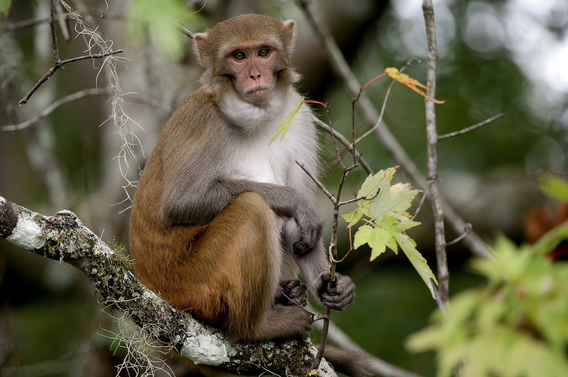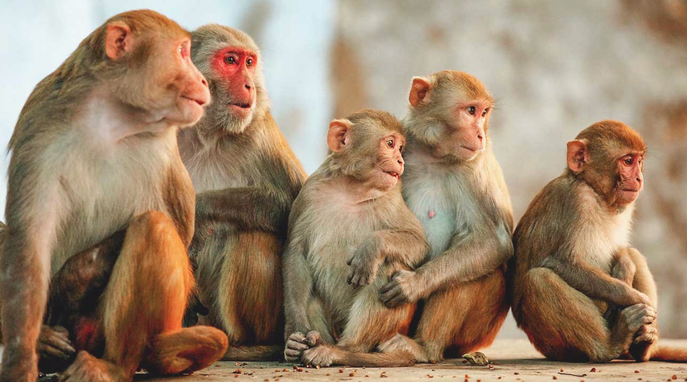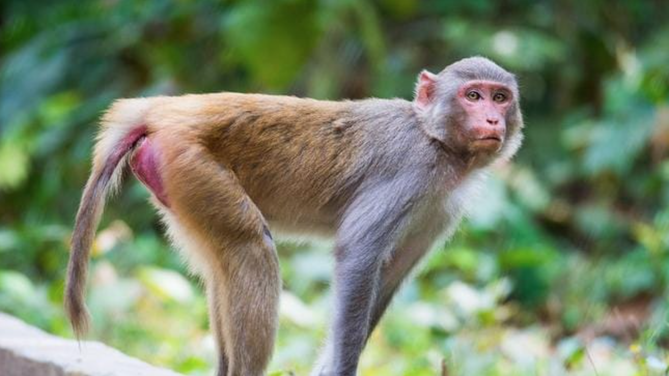|
Florida has been grappling with invasive species like Burmese Pythons, which wreak havoc on native wildlife for decades. Silver Spring State Park in Florida, previously well-known for its pristine forests and wetlands with a spring-fed river flowing right through it & exotic native wildlife, is now home to over 1,000 rhesus macaques. Native to south and southeast Asia, these monkeys are prolific breeders and consumers. They’re herbivores but also feed on small insects, invertebrates, and bird eggs. This diverse diet combined with occasional feeding by humans has helped them habituate and thrive outside their native range. “A recipe for trouble,” as anthropologist Erin Riley, studying human-animal interactions from San Diego State University, had described. The Silver Spring primates aren’t as afraid of humans as other animals. Though they are skittish around people, their aggressive behavior led to the partial closure of two State parks in 2016 & 2017. A prime reason why a growing population could lead to the increased human-macaques interactions and conflicts. A new study published in the journal Wildlife Management suggests that their population will double by 2022 unless controlled. This ballooning population is a threat to park management and visitors. This is because the macaques carry a rare and deadly form of Herpes virus, Herpes B virus. Though it is extremely rare for Herpes B to spread from a monkey to a human, it can be fatal when it does Getting to the root-cause It all started in 1938 when a cruise boat operator "Colonel Tooey" procured monkeys from a primate dealer in NYC for use as the attraction in Tarzan-themed park, which were released onto the man-made island within what is now the Silver Spring State Park. Tooey hoped to entice the tourists with monkey sightings, but what he didn’t know was rhesus macaques are great swimmers and undeniably invasive. Soon after their arrival on the island, the flesh-faced monkeys began escaping into the woods. Six more macaques that were brought in to replace them escaped as well. By 1984, hundreds of feral macaques (about 400 according to one study) had spread out across the 5,000-acre park, and a dozen sightings are reported even beyond the limits of Silver Springs State Park, into Northeast Florida. The invasive macaques became a tourist highlight owing to their urban legend. Tourists get emotionally connected with these pink-faced, furry monkeys. (No, the monkeys did not escape from the set of a Tarzan movie). Fast forward to 2012, Florida wildlife officials had removed over 1,000 wild chimps and sterilized 20 female macaques as a part of the state-sanctioned initiative to halt their population growth. But, it didn't solve the problem. Florida has seen a surge in the population at an annual growth rate of 11%. Wildlife ecologist Jane Anderson from the Texas A&M University-Kingsville believes that numbers can be reduced to one-third only if half the females are sterilized annually. However, the most viable solution would be to remove about half of the adults, and to-be adults, every two years for 16 years, he adds. Obviously, the public won’t support such a move! In 2012, the campaign faced an extreme backlash from animal rights groups and ended abruptly when the news surfaced that monkeys are being captured and sold. By that time, more than 1,000 monkeys had been sold to biomedical researchers; 700 of these were caught and sold by a single trapper. Since then, the FWC has prohibited feeding wild rhesus monkeys, but there are no effective population control measures in place. Sterilization is expensive, and culling is inhumane and unpalatable. Herpes-carrying Invaders on the loose! Experts say if you spot a rhesus macaque, leave it alone! It might be carrying the deadly Herpes virus. A few years back, scientists from the U.S. Centres for Disease Control and Prevention discovered about a quarter of the macaques’ population might be carrying the Herpes virus. Herpes B is a very common and potentially fatal disease. This involves the liver and is caused by a virus. This disease is both acute and chronic in nature. Some of the most common ways you can get it is via sexual contact, blood transfusion tattooing, and also from mother to child during childbirth and pregnancy. Though the odds of acquiring the virus from the monkey are low, the potential consequences are really dire. Macaques shed viruses in their bodily fluids, i.e., saliva, urine, and feces, and humans can contract viruses through scratches, bites, or contact with an infected monkey’s eyes, nose, and mouth. So if one comes in contact with them in the wild or with infected monkeys in a lab, one can get infected by Herpes B. Herpes B causes inflammation of the brain and spinal cord, leading to severe brain damage and ultimately death. The preliminary symptoms include jaundice, nausea, vomiting, and pain in the abdomen. There is no specific treatment for this disease except the maintenance of essential nutrients and replacement of the fluid loss during the vomiting. Less than 5 percent of cases progress into a chronic state. There is a vaccine available for this disease. This disease rarely takes a rapid turn in which life is destroyed at a very rapid state; it is called fulminant Hepatitis. Herpes simplex virus is a highly virulent yet rare virus. It is extremely fatal for humans; however, only 50 cases have been documented in the country to date, of which only 21 died. A more pressing concern is their impact on the native environment and wildlife. The wild monkeys destroyed mangrove trees, leading to a massive vegetation loss and shoreline erosion in the Florida Keys, as per FWC reports. They also pollute the water and kill native birds. Macaques Management Action plan: There isn't one! Since 2012, there has been no serious effort to thin Silver River’s monkey population. Officials rely on warning the parkgoers through signs and flyers to keep their distance, neither approach monkeys nor feed them. Staff may temporarily cordon off areas where they spot monkeys during safety and maintenance checks. “Without proper management action, the presence and proliferation of Silver Spring rhesus macaques in Florida can result in serious human health and safety risks including human injury and transmission of disease,” said Thomas Eason, assistant executive director of the Florida Fish and Wildlife Conservation Commission. Also, they can adversely impact the native wildlife and pose potential risks to Florida’s agriculture and recreation. Therefore, active management for the removal of these threats is needed. Capturing or culling invasive yet charismatic rhesus macaques is different from culling Burmese Python in Florida. People don’t care about snakes as much as this furry creature. Still, we cannot let macaques on the loose! AuthorNida Riaz is a freelance blogger based in Pakistan. She started writing about her passion for the environment when the world came to a stop in early 2020.
1 Comment
Emilly
10/23/2023 11:51:09 am
Please Approve.
Reply
Leave a Reply. |
|
|
(833) CMS-LINE
(833) 267-5463 PO Box 13477 Mill Creek, Wa, 98082 © Conservation Made Simple. All rights reserved.
501(c)(3) Non-Profit, Tax ID#: 82-1646340 Copyright © 2021 Conservation Made Simple |



